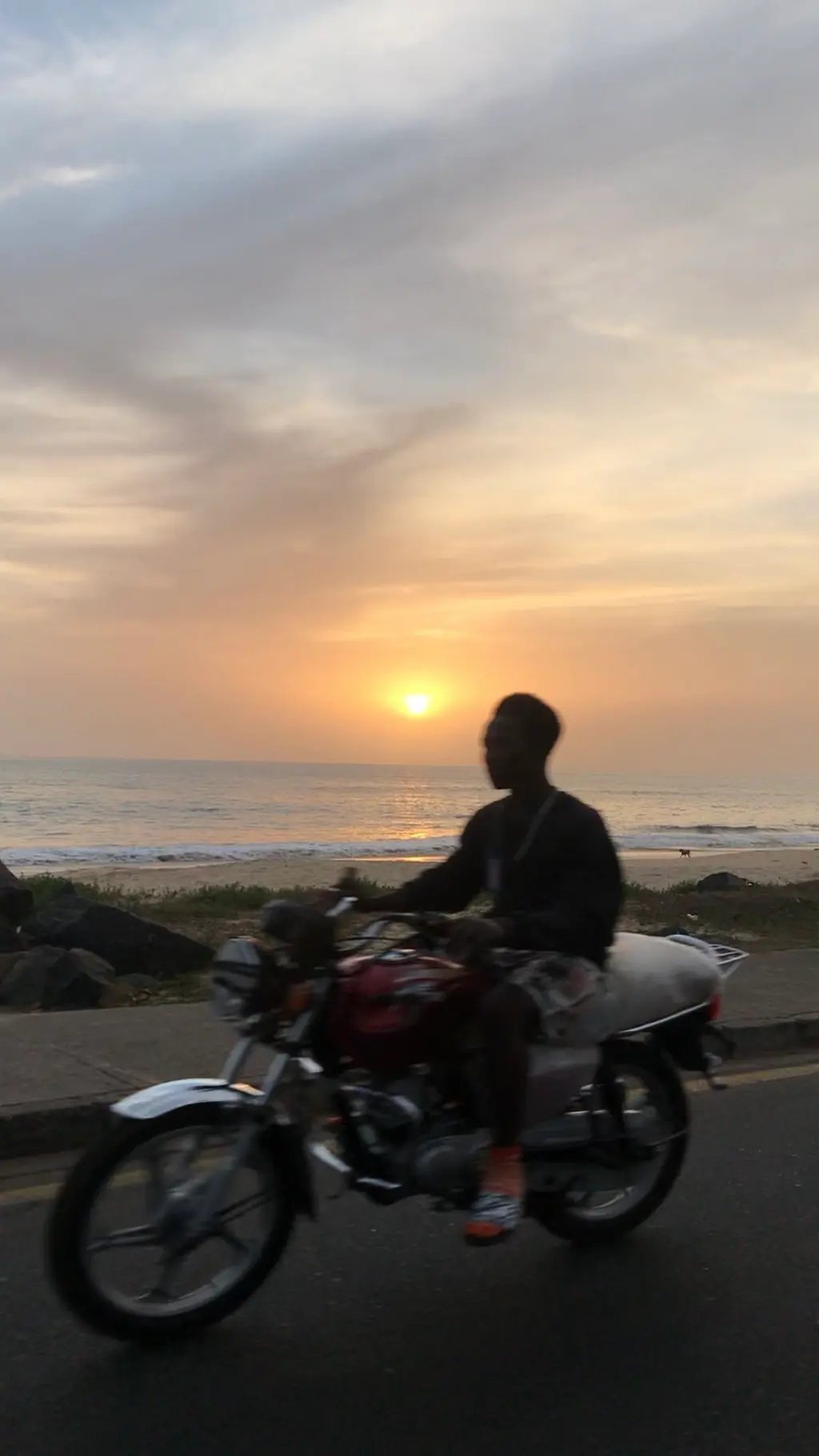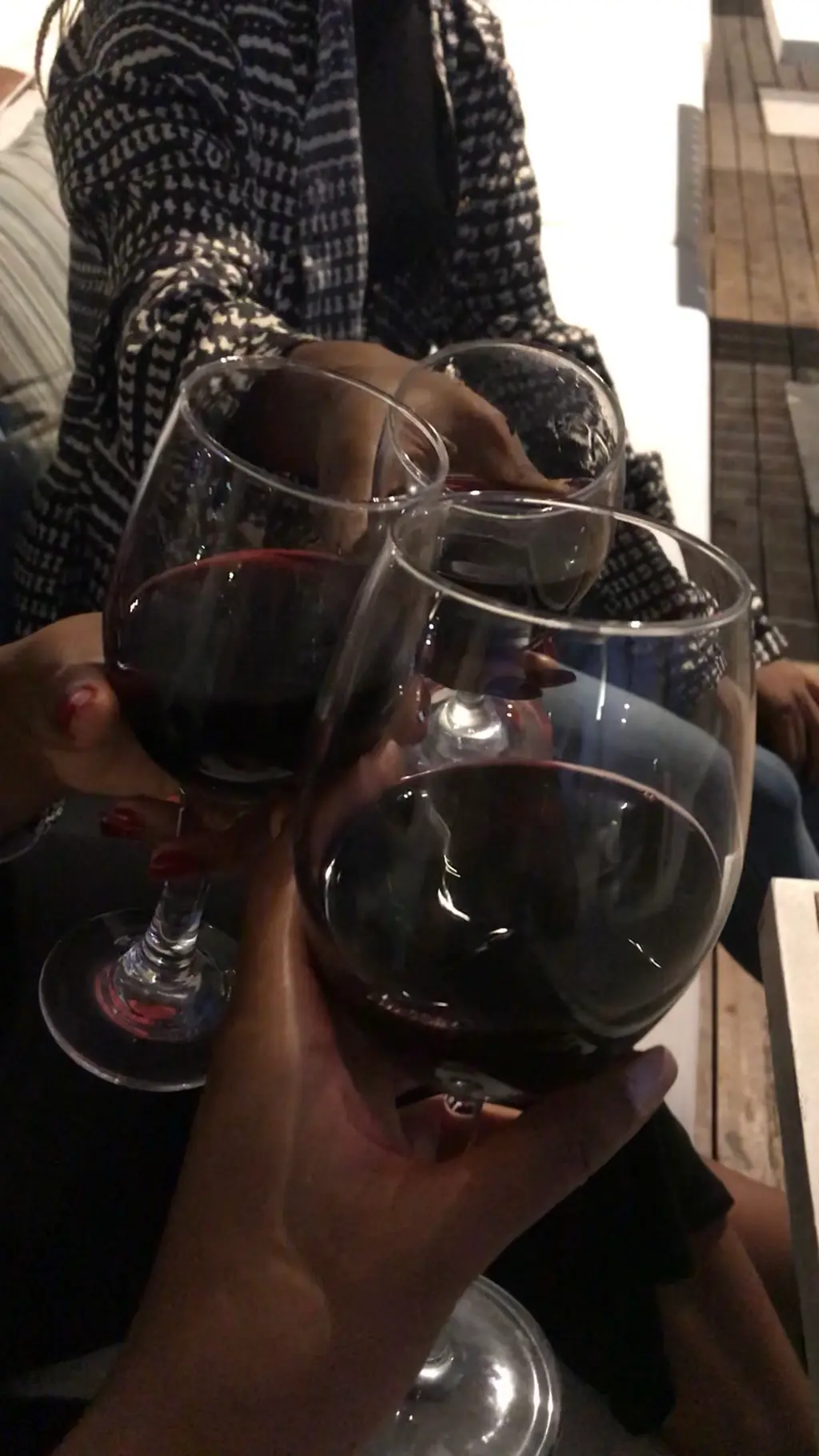Life as a 23-year-old masters student with Borderline Personality Disorder

Mental Health Diaries: Masters student Haja Marie Kanu logs a day of living with Borderline Personality Disorder, while away from home in Sierra Leone.
Life
Words: Haja Marie Kanu
Each year, one in four people will struggle with their mental health in some way. But you don’t need statistics to realise the true extent of the problem. You perhaps only need to speak to friends and family, or even look inwardly, to notice that our collective mental health is in freefall. As we figure out how to heal from the tragedies of the pandemic, awareness has never been more important.
It’s not all doom and gloom, though. Running parallel to the rise in mental health issues is a growing desire to open up about the things we usually bottle up. Slowly but surely, stigmas are being smashed, taboos are being lifted, and more people are finding the courage to speak out.
THE FACE’s new series, Mental Health Diaries, is only part of the conversation. By laying the realities of living with various issues bare, we hope to not only encourage understanding and empathy towards those with stigmatised conditions, but also inspire people to reach out to others and seek support. Most importantly, we want everyone to know that they’re not alone.
[TW: Mention of suicide ideation]
My name is Haja Marie Kanu. I’m a 23-year-old masters student from London. I’m currently writing from Sierra Leone, on a state-sanctioned visit to see family I’ve not seen in at least two years. Three years ago, I was diagnosed with Borderline Personality Disorder and Obsessive Compulsive traits. Oversimplified, this means I’m highly emotional and very anxious. Of course, the official diagnosis is far more complex, and everyone diagnosed with BPD will have an individual experience and understanding of their mental health. There’s no single way to “be borderline”. There are no borders to be traced across the sprawling complexity of the human mind.
7:00: My mother wakes me up to say goodbye before she leaves for work, just as she’s done every day since I arrived in Sierra Leone a month ago. I went out drinking last night. I’m not ready to be awake yet. I’m going back to sleep.
7:46: I can’t get back to sleep. I always have particularly bad anxiety after I drink. This might be a sign to stop drinking altogether. I probably won’t though. I alternate between Instagram and Twitter, self-involved and paranoid that a terrible photo of me has become a viral meme. I put my phone down and try an episode of The Office to relax. No luck. I switch to a podcast, so the soothing voice of LeVar Burton can send me to sleep.
10:00: I’m still drifting in and out of sleep. I probably won’t get up until my hunger becomes unbearable, or I really need to pee.
11:30: For breakfast, eggs. I miss cereal. I haven’t had any since I got here, because I can’t find a dairy alternative milk. When I get back to London, the second thing I will buy is oat milk. The first is a Covid test kit.
12:00: I finally remember to take my medication that I neglected last night. Escitalopram 10mg, aka Lexapro, AKA my hero in pill form. It quiets the intrusive thoughts and the suicide ideation, or at least softens the blow when they inevitably come racing back.
12:15: I fall asleep again because my meds make me drowsy, which is why I should remember to take them at night.
14:00: I wake up. I should probably start my day. Instead, I sit on my phone for another hour or so.
14:45: I shower, get ready and start calling my friends in search of a motive. Every day I spend at home while in Sierra Leone feels like a waste. I feel like I’m about to get thrown back into my real life, without making the most of the fantasy.
15:30: I post an instagram story, only to obsess over who’ll see it.
15:32: I check my story views.
15:40: I check my story views.
15:45: I leave my phone in my bedroom and move to the living room in an attempt to focus on real life.
15:53: I go back to get my phone and check my story views. He’s seen it. Now what? Being seen is never really enough. Validation only half-given is so bittersweet. Another day outsourcing my reasons to stay alive, but, living with chronic suicidality, you do what you can to keep yourself here.


16:00: I call my friend. I want to go out again.
19:00: My mother gets home from work. We argue. She thinks I’ve been going out too much. I tell her I’m 23 and going back to the mundanity of everyday life soon. Even though I’ve changed my flight twice. Even though she’s right.
21:00: A compromise: I go to a beach bar with my cousin and our friend.
23:30: It started raining seemingly out of nowhere, as it often does at the start of the rainy season. I don’t know how I’ll get home under this tropical rainstorm. I call my mum and she tells me to wait until it passes, she can’t come and pick me up. I feel like I’m being punished. Everything always happens to me.
00:30: After an hour of waiting for a taxi, my cousin convinces me to take an okada (a motorbike taxi) home. I’ve never been on the back of a motorbike before. My emotions range from terror to joy, triggered by adrenaline.
01:00: I take my meds and lay in bed. I think I’ve wasted another day. I worry about deadlines, dying, climate change, the apocalypse, Palestine, the past and how I’ve done nothing but think about myself today. I pick up my phone and put it down at least ten times to no notifications I care about. I check my instagram story views for all the same faces and open twitter to a deluge of bad news.
01:30: I put on a podcast and will myself to sleep. Stories of strange worlds and a dystopic present mingle seamlessly with my dreams and anxieties.
Q&A
What’s the number one misconception about BPD?
Most things you hear about BPD are unfair, but I suppose the most harmful is the idea that people with BPD are responsible for their trauma. On what was supposed to be a reputable website, I once read that people with BPD experience higher rates of abuse due to “poor judgement” when choosing partners. Rather than this victim-blaming, we should be thinking about how we can break the pattern of abuse that some people with BPD have experienced their whole lives, and address the issue of abusers preying on vulnerable people.
What’s the most useful coping mechanism you use?
I feel I’m not the best person to answer this question. I’m still searching for a healthy and sustainable coping mechanism. I get through my days on a complex system of distraction, avoiding being alone with my own mind. If I’m alone, I’ll put on a podcast or comfort TV. When things get too overwhelming, I run away.
What would your message to fellow sufferers be?
I tell my friends, “You’ve felt low before, you’ll feel low again. Don’t let yourself forget the highs. If you’ve survived all your other bad days, what’s one more?”
If you or someone you know is looking for support with BPD, visit mind.org.uk for more information on the disorder and treatment options.



